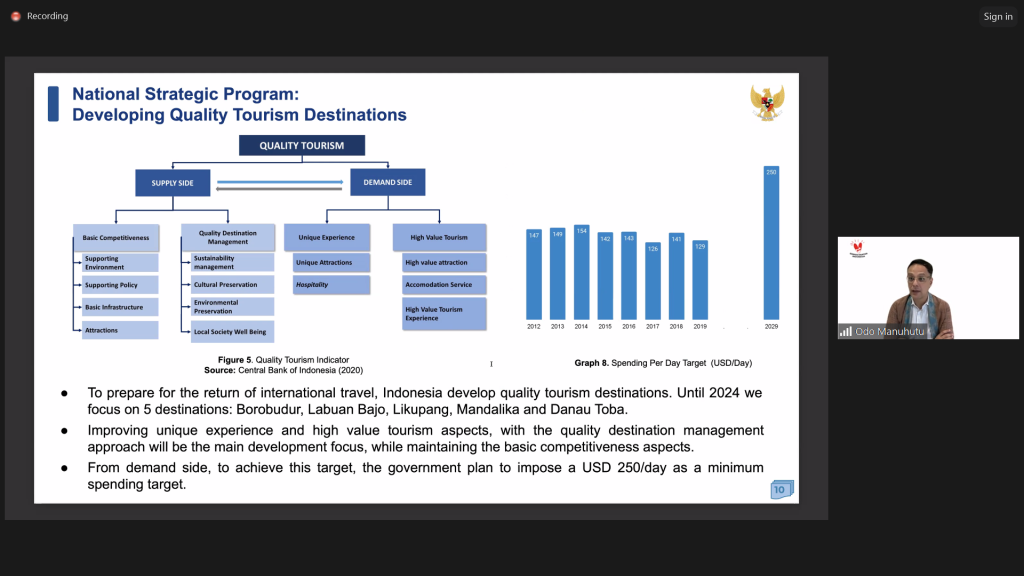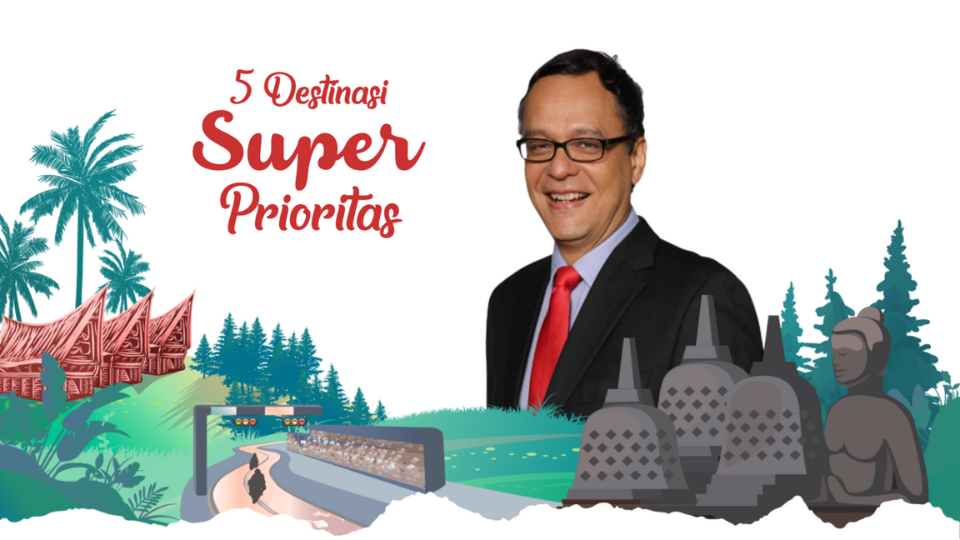Tourism is one of the largest foreign exchange contributors to the country. However, since the Covid-19 pandemic hit, the tourism industry has been devastated. For this reason, careful planning and development are needed to restore life to the Indonesian tourism industry.
This was conveyed by Odo Manuhutu, Deputy for Coordination of Tourism and Creative Economy, Coordinating Ministry for Maritime Affairs and Investment in Indonesia, when delivering a guest lecture in the Business Leadership Executive MBA (BLEMBA) ITB Jakarta Campus at Graha Irama, Jakarta (3/10). Odo hopes that MBA ITB students can contribute to the recovery of this industry.
According to Odo, as of 2019, Indonesian tourism has not fully rebounded. The number of foreign tourist arrivals as of August 2023 accounts for only 46.04% of the 2019 figure. However, there is a noticeable recovery in domestic tourist arrivals, evident in the statistics reported by BPS. As of June 2023, domestic tourist arrivals have reached at least 60% of the 2019 benchmark.
“We must continue to improve, develop, and boost our tourism so everything can return to normal,” said Odo.

According to Odo, Indonesia has designed tourism and creative economy policies. In the short term, Indonesia is focusing on tourism recovery. Furthermore, in the medium term, Indonesia will focus on achieving branding as a quality tourism destination. And in the long term, Indonesia targets itself as a high-value destination.
At least several steps have been initiated, including developing super-priority destinations (Borobudur Temple, Lake Toba, Likupang, Mandalika, and Labuan Bajo) and utilizing government assets in tourist destinations. The government is also trying to integrate matters related to local wisdom from each region. This then makes the Central Government engage the Regional Governments and maximize their role in every development.
“So, the results obtained from each collaborative work can run optimally,” added Odo.
Indonesia also regularly holds many sports, creative industry, and religious activities, like MotoGP activities at the Pertamina Mandalika International Circuit.
In addition to addressing physical requirements, Odo emphasized the crucial role of high-quality human resources in delivering a positive experience to tourists. These resources play a pivotal role in creating an outstanding first impression that entices visitors to return, drawn by the comfort, beauty, and friendliness they encounter.
Regarding foreign policy, Indonesia is also expanding cooperation with friendly countries to realize the Visa Free Policy, Digital Nomad, and E-Visa.
“We are targeting work from anywhere (WFA) workers to work from Indonesia while on holiday,” he explained.
Odo also suggested that a promising opportunity lies within the film industry. The government is encouraging all stakeholders in the film sector to produce their films in all super-priority tourist destinations.
Meanwhile, in the medium term, Indonesia will focus on the sustainable development of super-priority destinations. In the long term, starting in 2031, Indonesia will focus on developing a Unique Selling Proposition and Value for tourist destinations. Green tourism is also a focus because the world is currently focused on implementing SDGs.
Lastly, Indonesia is also targeting Industry-Driven Tourism. In implementing this policy, there are many challenges. Private investment is needed so that the burden on the government budget is not too significant.
“There are three keys: simplifying licensing policies, providing competitive incentives for tourism businesses, and providing good basic infrastructure.” closed Odo.




